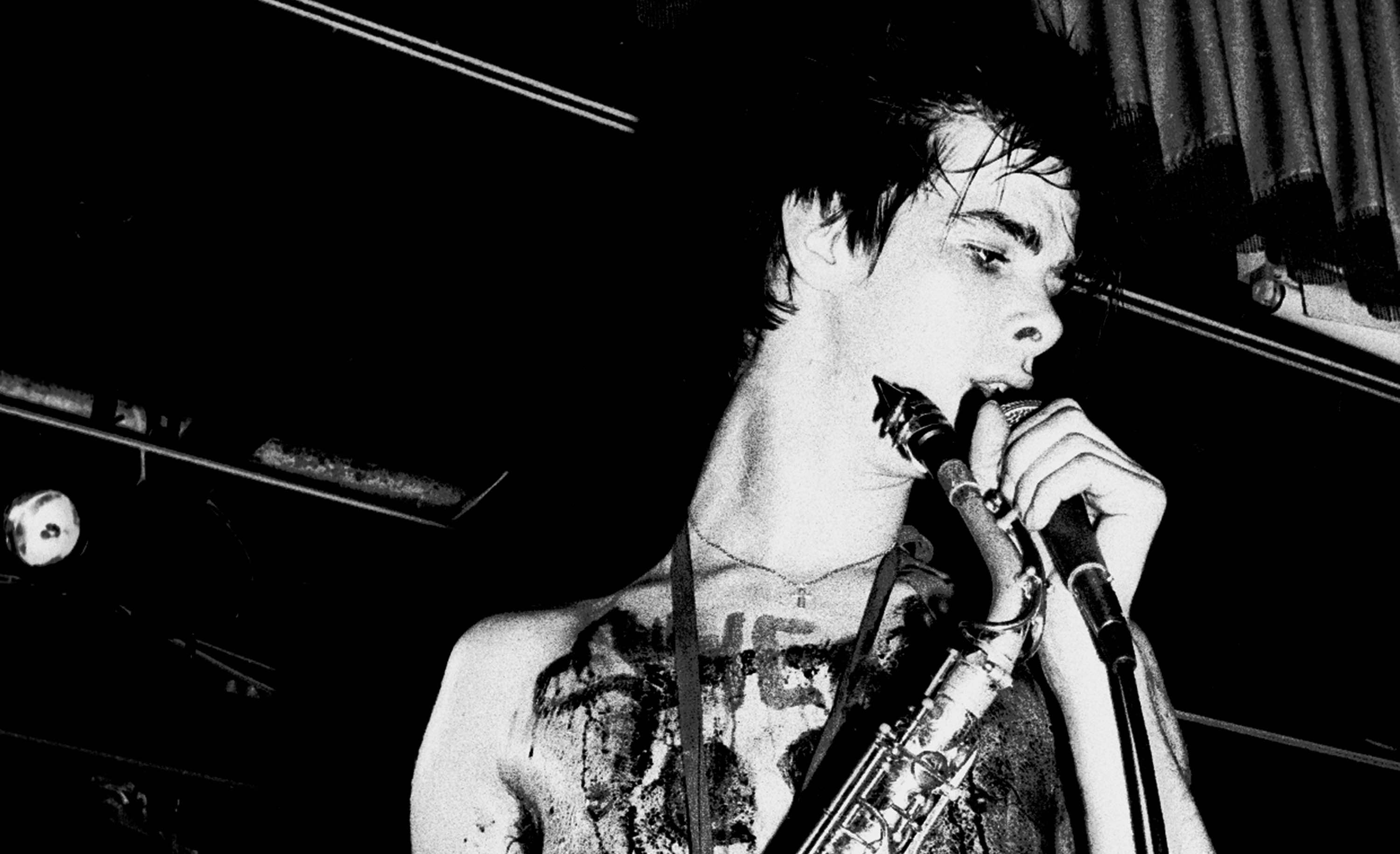Nick Cave has spent a decade as the soul of empathy and spiritually imbued calm. Represented by his Red Right Hand Files and its connectivity to his well-wishing fans, an intimately cinematic post-traumatic profile courtesy of Andrew Dominik, the paperback edition of his raw, conversational Faith, Hope & Carnage, and a brief, quiet two-person tour that ends in Los Angeles at the close of October, Cave has increasingly become a more optimistic and balming presence than he was in his more adversarial days—a time tied to his existentialist murder-balladeer persona and its bleak and bloody narratives for those first few Bad Seeds albums of the 1980s.
Truly, Cave’s once-held savage Biblical fury cataloging violence-driven characters and dire narratives stems from his time as the frantic frontman to the clamorous Birthday Party, the Australian post-punk noise act whose mania knew no bounds; not Cave’s, and certainly not those of his friends in crime: Mick Harvey, Phill Calvert, and the now-late greats Tracy Pew and Rowland S. Howard. Produced by Harvey and Wim Wenders and directed by Ian White, the new documentary Mutiny in Heaven portrays the vicious music-making crew during their fast, furious flame out between 1977 and 1983 all while implying why taking their name from playwright Harold Pinter’s ambiguous and menacing dark comedy made sense—if there was any sense to be made in the first place.
Featuring rare personal footage, old recordings, some nifty noir-ish pencil-sketch work recalling Frank Miller's Sin City, and interviews with Harvey, Calvert, Howard, and a Grinderman-era Cave (that mustache!), Mutiny in Heaven tells the story of drunken, troublemaking, literary-minded youths (Cave and Pew in particular) who became heroin-abusing, troublemaking, literary-minded young adults making standard-issue, snot-nosed (but melodic) punk-rock in Australia as The Boys Next Door. That is, until drugs and a change of outlook toward aggressive, unruly, boundless noise turned them into The Birthday Party.
As their attempts at making any form of impact on London’s boring music scene of 1980 continued to be thwarted, The Birthday Party’s sole mission became to make music antithetical and antiseptic to all that was happening in their adopted home (watch for the scene where they describe attending a bill that included Echo & the Bunnymen, The Teardrop Explodes, A Certain Ratio, and the Psychedelic Furs; only the Furs remain unscathed, everyone else was “bilge”). Insistent touring with increasingly violent live shows (including glorious trash-heap gigs I witnessed at NYC’s The Ritz and Philadelphia’s East Side Club) and ever-more menacing, sinister, and lyrically entrancing albums of noise and beauty (1980’s eponymous debut, 1981’s Prayers on Fire, 1982’s Junkyard) that won fans in influential places (such as Brit radio overlord John Peel) gave way to more arrests, more drugs, more incendiary live gigs, and more vexingly immersive, soul-tortured music until they couldn’t go any further.
As you watch the documentary (even for those of us who followed them), the story of The Birthday Party will make you sweat as if you’re watching the new Saw movie—you know that everyone’s going to die gruesomely, but you simply can’t refrain from feeling the pulse of the bloodletting despite knowing the post-credit denouement—that Harvey, Calvert, and Cave made it out alive. But reliving the morass of Mutiny in Heaven that got them to where they are now requires a deep breath. Theirs is a bumpy 90-plus minute ride.







